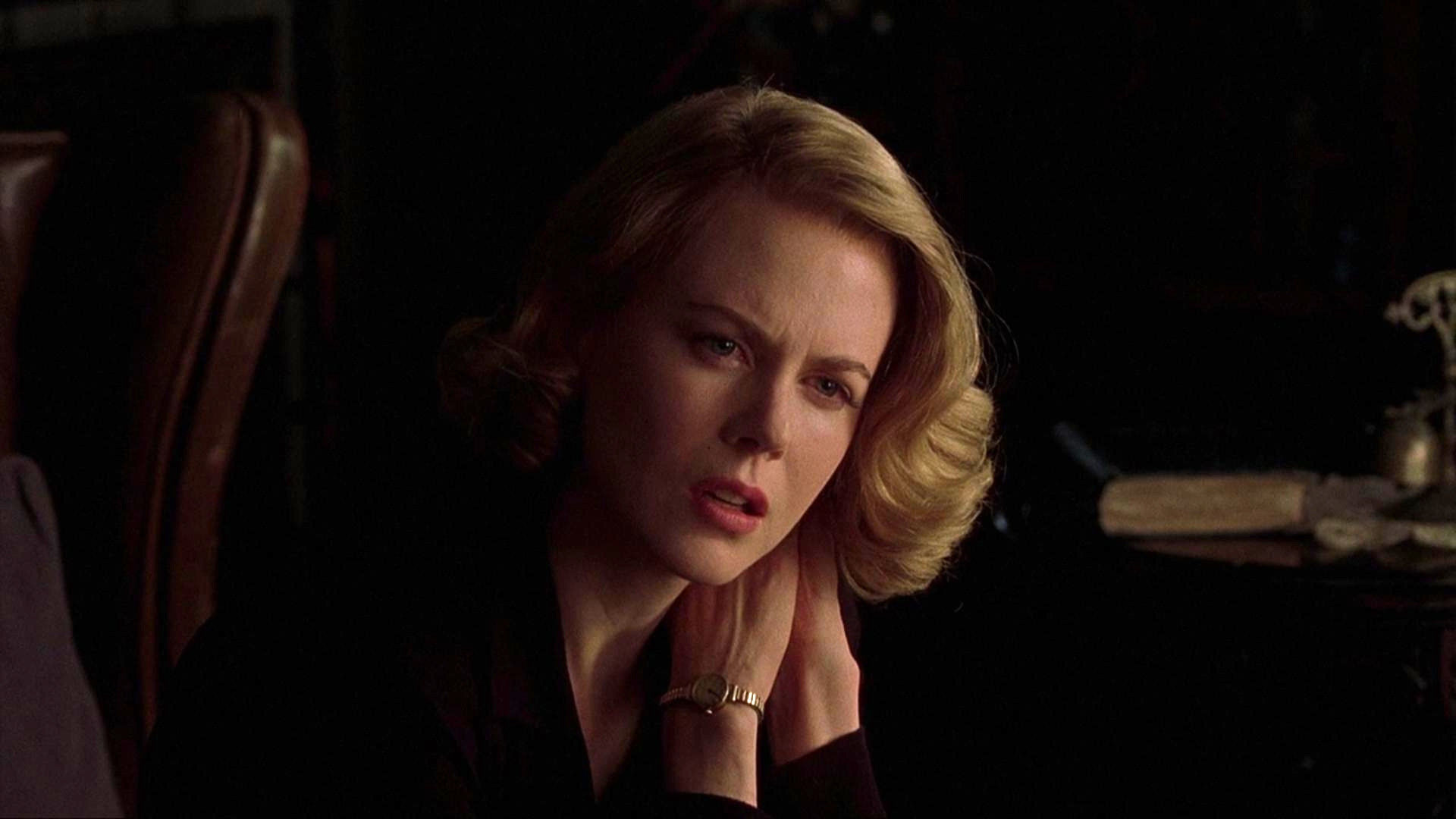Create a free profile to get unlimited access to exclusive videos, sweepstakes, and more!
The Others and the forgotten ghosts of war

Ghost stories can represent anything, really. But, in the simplest of terms, ghosts represent the past; often a past we regret but cannot change. A ghost story isn't just a chance to sit around the campfire and scare each other with folk tales of what may have been — it's a chance to reflect on what was and what must never be again.
One of the absolute best examples of that type of ghost story is the 2001 film, The Others, a film about a family trapped in the dark of a house they don't feel safe enough to leave being visited by what they believe are ghosts.
The Others often goes forgotten in the annals of horror history, which is ironic given its subject matter. There are reasons why people don't cling to The Others the way they probably should. The most obvious being that it's a story where the twist (18-year-old spoilers) is that our protagonists have been dead the whole time but don't know it. And that era in horror filmmaking already has an iconic movie with that twist (20 year old spoilers): The Sixth Sense.
The Sixth Sense is all about the twist. It's this enormous moment in pop culture history. Bruce Willis was a ghost the whole time, OH MY GOD, WHAT?! The Sixth Sense is practically the genesis point for the concept of spoilers. It's not that you can't enjoy The Sixth Sense once you know the twist, it's that this enormous aspect of the cinematic journey is lost. And when people got spoiled for that movie? They complained. ENDLESSLY. People still complain and it's been twenty godforsaken years now. All of which is to say that The Sixth Sense leaves quite a shadow and The Others wound up living in it.
The Others isn't that kind of movie at all. The twist is a big reveal, but the whole movie doesn't hang on it in the same way The Sixth Sense does. Also, The Others is a much more quiet and slow moving experience. There's a great deal more time spent on the anxiety and paranoia that comes of feeling trapped inside of your own life than there is on the twist reveal that everyone's been dead the entire time. It's subtle. And, in that way, The Others can seem a bit forgettable.
The reason why that is so ironic is because, from an historic viewpoint, The Others is specifically about a moment in history that people try to forget: the invasion and subsequent occupation of the Channel Islands during World War II.
The Others is set on the Channel Islands. The characters certainly perceive themselves to be in a time that is at the tail end of World War II as evidenced by the expectation that the father character, who has been off to war, ought to be home by now. So one of the anxieties in the film is this one man's absence and the war that is the reason for that absence.
The invasion of the Channel Islands is a black mark on Britain, an impossible choice where there were no good answers, but everyone gets to feel guilty anyway. The brief history lesson is this: during World War II, it was decided that the Channel Islands couldn't be defended in addition to everything else that needed to be done to win the war. So, silently, Britain pulled troops away as well as what citizens on the islands that they could. Eventually Germany invaded the Channel Islands and, what citizens were left there, became prisoners in their own home.
The consequences of Germany's invasion of the Channel Islands are disturbing. England abandoned its own people. And those people who became prisoners had to walk an impossible line. They were told not to revolt, but, also, they couldn't really go along with being invaded either, could they? Basically, from the moment the Germans invaded, every person in England had to live with the guilt of it. People were tortured on those islands. People died. The ghosts of that invasion will live on forever.
The subtext of The Others is all about the ghosts of that specific part of World War II. Which is why it being oft-forgotten in favor of The Sixth Sense is so ironic and such a shame.
There is one other thing about The Others that connects to this theme and makes it even more fascinating. The movie was released into theaters on August 10, 2001. And it stayed in theaters for quite a time; well into September, in fact. It was still in theaters during the attacks on 9/11. Which, ironically again, inspired people to go see The Others because they wanted to have a break from what was happening in the real world. So many people saw The Others, in fact, that is wound up making almost $210 million at the box office, which is a lot for a horror movie in the cinematic dead zone of August.
Imagine it: people running from the realities of an attack on home soil wound up in the arms of a film that is, effectively, about the ghastly consequences of an invasion and occupation of home soil. America and England were about to go to war, and here was a ghost story all about the consequences of war. No wonder so many people forgot it. Those are the types of memories people so often choose to forget if only for their own basic survival.
On today's episode of Every Day Horror presents The 13 Days of Halloween podcast, Dan Olson and Crystal Donovan return to the show to chat about The Others, its sad history, what makes it subversively scary, and why Nicole Kidman's performance is so impressive.
On tomorrow's episode, comic creators Vita Ayala and Danny Lore bring to the show a unique look at, arguably, the most seminal werewolf movie of all time, John Landis' An American Werewolf in London.


























